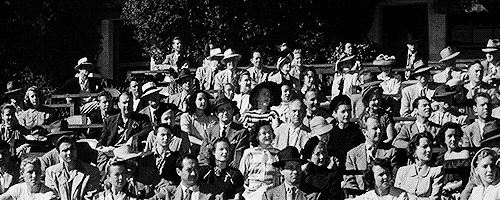To say that I was excited to read ‘How to be Both’ by Ali
Smith would be an understatement. Shortlisted for the Booker Prize, the Bailey’s
Prize and the Folio Prize, winner of a Costa Prize the Goldsmiths Prize and the
Saltire Society Literary Book of the Year Award for 2014, and recommended to me
by several of my friends, I began reading this book expecting to absolutely
love it. While I did enjoy it, I’m sorry to say, it fell short of my (perhaps
unreasonably high) expectations.
First, a bit about the book itself. The book is interesting
in that it is split into two parts, one following the life of a Renaissance
artist and the other following the life of a teenage girl in 21st
century Cambridge. The two novella length sections are printed in a different
order depending on what edition you have picked up, with my particular copy
starting with the artist in fifteenth century Ferrara and then moving on to the
teenage girl, named George. This makes the book very strange to write about as
someone who began reading the book from George’s perspective may disagree
entirely with everything I am about to say.
I found George’s story to be touching, interesting, well
written and very funny in parts. When I finally did come to read this section,
I really enjoyed it. In fact, I felt so connected to the character after 170
pages I could easily have read an entire novel continuing her story and will
definitely go and read more Ali Smith novels off the back of it. The problem,
for me, was with the first half of my copy of the book on the artist Francesco
del Cossa. As someone who absolutely loves history and art I really wanted to
love this but found myself a bit bored and disengaged with the character. Being
completely honest, I spent the first fifty or so pages not having a clue what
was going on. Admittedly, both parts refer to the other so I imagine that it is
possible I could have had the same experience no matter which section I began
with, and this experience of everything coming together as you continue reading
is, of course, part of the point of having them split in this way. Don’t get me
wrong, I appreciated it – it is very clever and very different to anything else
I have read. But did I enjoy feeling completely lost as I was reading much of
the first half? No, not at all. Had ‘How to be Both’ not come so highly
recommended I would probably have given up after the first hundred pages. I am
glad I didn’t give up as the experience of piecing things together and
realising what the first half was referring to was fun. It just doesn’t change
the fact I found the first half of the book a struggle. Reading a few other reviews
of the book by critics, on Goodreads and on Amazon, it probably isn’t a
coincidence that nearly all of the reviews giving this book five stars started
with modern day Cambridge and many of those not enjoying it began in Ferrara.
 This is not to say that I didn’t enjoy the book at all. This
is an original and very intelligent novel that has some interesting points to
make about gender and how things are not always what they seem. I particularly
enjoyed during the second part of the book feeling that I was beginning to
understand an ‘in joke’ from the first half. Without wishing to ruin the story,
Smith is able to explore some very serious questions (some with more subtlety
than others) without it feeling too preachy and moralistic, and this definitely
deserves praise. And obviously the unusual way the novel is structured is
daring and interesting to read with much written about Smith expanding the ‘boundaries
of the novel’. But all in all this was a book that I admired rather than
enjoyed, and for this reason it fell slightly flat for me.
This is not to say that I didn’t enjoy the book at all. This
is an original and very intelligent novel that has some interesting points to
make about gender and how things are not always what they seem. I particularly
enjoyed during the second part of the book feeling that I was beginning to
understand an ‘in joke’ from the first half. Without wishing to ruin the story,
Smith is able to explore some very serious questions (some with more subtlety
than others) without it feeling too preachy and moralistic, and this definitely
deserves praise. And obviously the unusual way the novel is structured is
daring and interesting to read with much written about Smith expanding the ‘boundaries
of the novel’. But all in all this was a book that I admired rather than
enjoyed, and for this reason it fell slightly flat for me.
If you are looking for a quick read or something to relax
with or if you are looking for a conventional structure and narrative, this
book is definitely not for you. If you are looking for something interesting,
different and thought provoking, it is definitely worth a read.
Beth x
Beth x

























.jpg)


